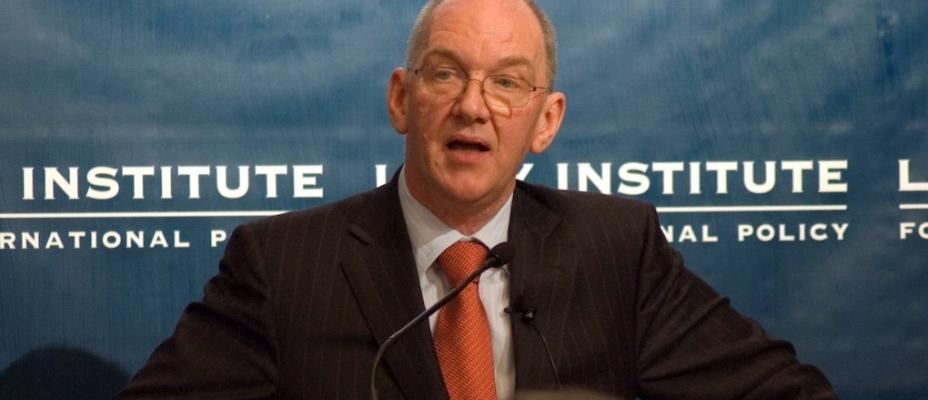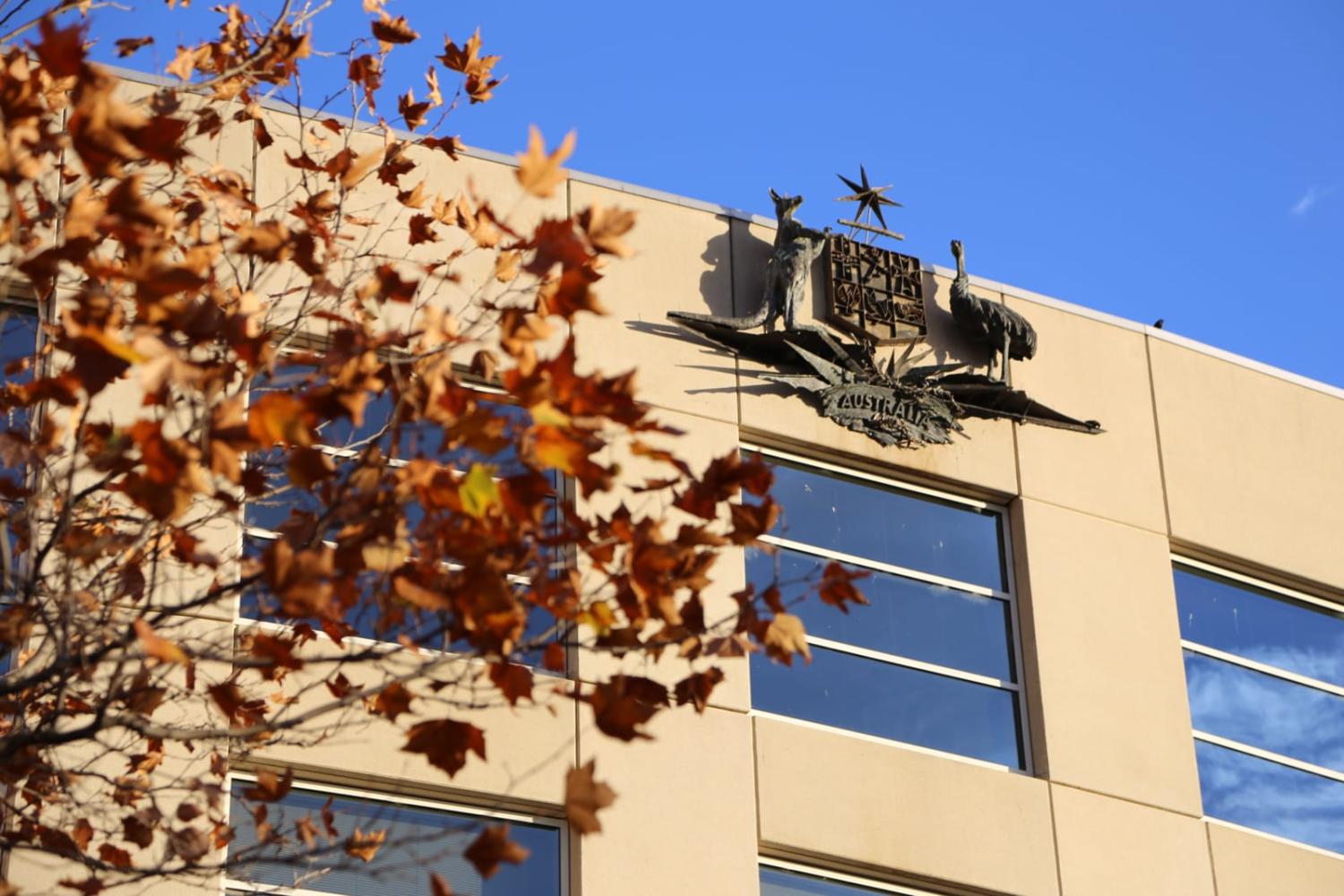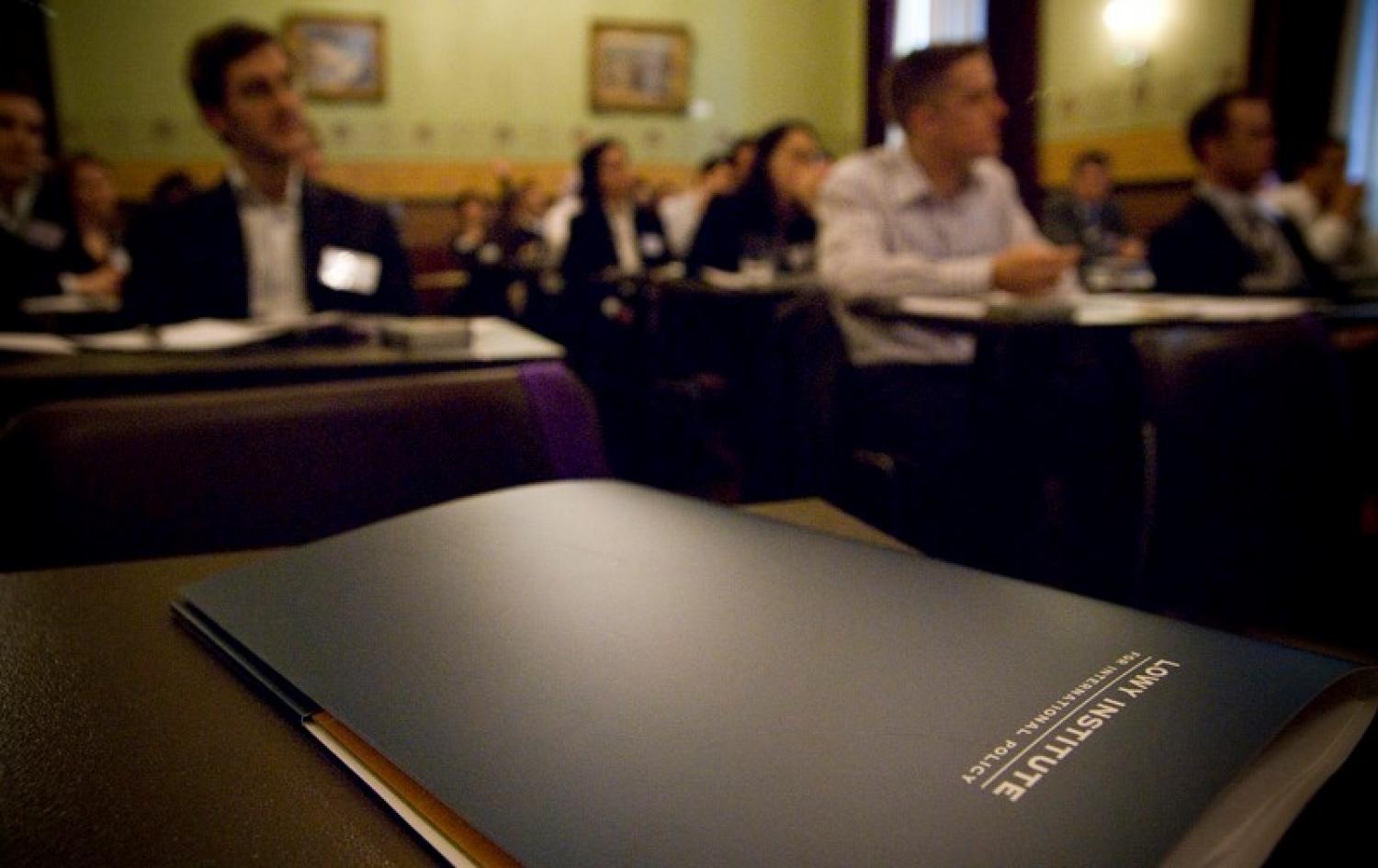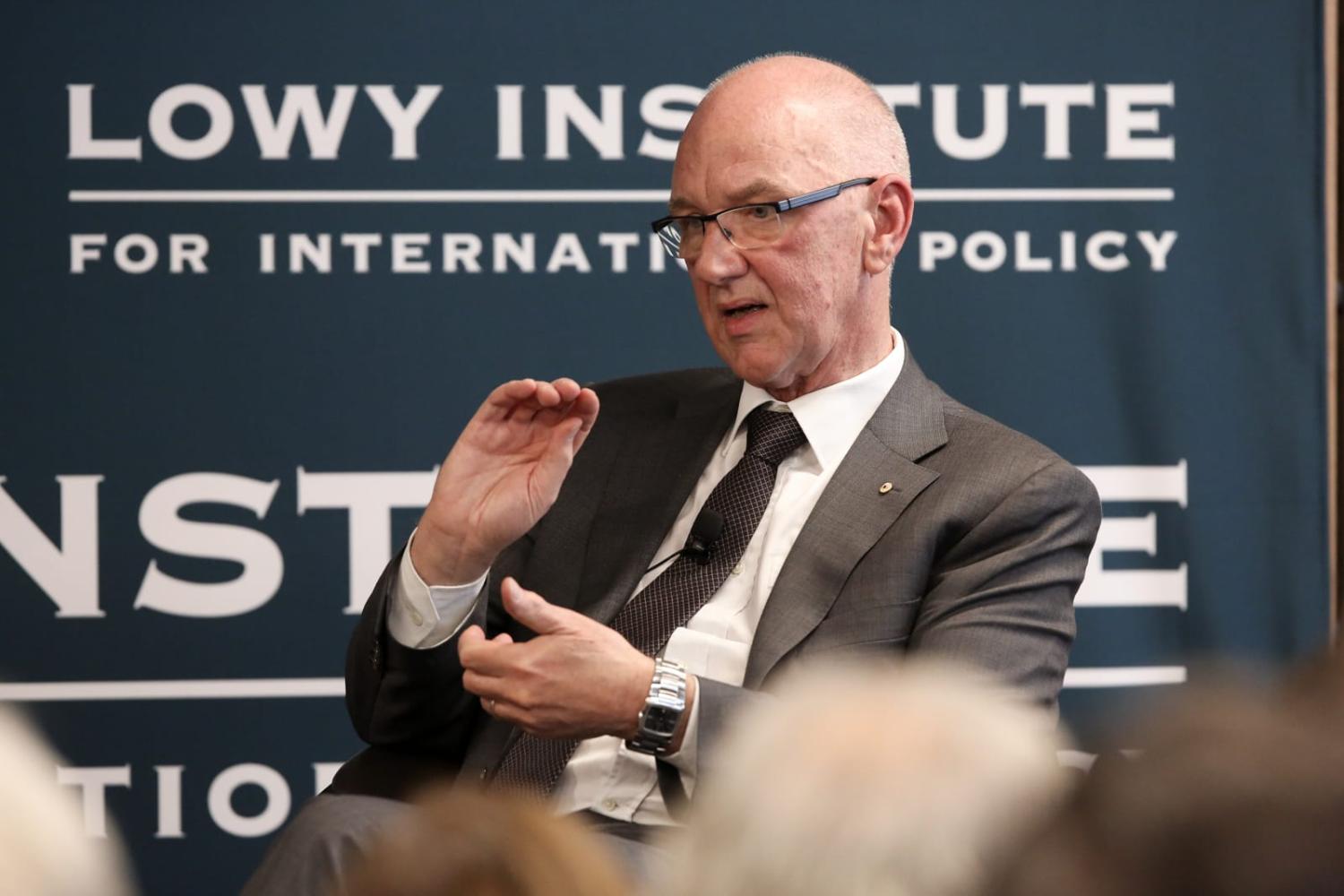During a summer break, The Interpreter will feature selected articles each day from throughout the past year. Normal publishing will resume 15 January, 2024. This article first appeared on 5 May, 2023.
Like many others, I benefited from the generous advice and kindness of Allan Gyngell, the superlative chronicler and conceptualiser of Australian foreign policy – but also always keen to foster a next generation of Australians thinking about the world. I first met Gyngell while an intern at the Lowy Institute during the time he led the organisation as its founding executive director, and we kept in touch intermittently in subsequent years.
Gyngell had a capacious and dynamic view of Australia’s “national interest”, and was wary of attempts to definitively pin down what it entailed or the range of concerns it should encompass. For Gyngell, the national interest was itself a matter for democratic discussion.
Gyngell frequently turned to the matter of Australia’s agency in the world. “Australians need to see themselves as the actor, not the audience, in the drama of the changing world,” he insisted. Can Australia constructively shape global life – its order, values, and relational dynamics – rather than merely respond to it? Can Australia become an innovator in international affairs, rather than satisfied as the beneficiary of good luck and powerful friends? These were animating questions.
Others have written eloquent and fitting tributes to Gyngell in recent days, with Foreign Minister Penny Wong’s statement foremost among these. I want to honour him in a different way, by recalling five of his ideas for a better Australian foreign policy.
First, incorporate an Indigenous element in the ceremonial welcome of foreign heads of state and government to Australia. Gyngell made the case for this back in 2008, demonstrating a focus that was ahead of his time: Wong has now set about elevating First Nations perspectives in Australia’s foreign policy, including through the appointment of an Ambassador for First Nations People. For Gyngell, the specific act he proposed would “remind Australians as much as visitors of the nature of the place they have come to and in which we live.”
Second, craft problem-solving coalitions in response to emerging global challenges. Gyngell had a profound sense of the shifting global order. He wrote in 2017 that “Australia now needs to marshal its national resources in order to help construct the new order and protect what is important in the current one”. He underlined the need for Australia to be more ambitious multilaterally and to rally others around effective global rules. He made the case for Australia to “identify areas where opportunities exist to build coalitions of interest on new subjects” such as on lethal autonomous weapons or the governance of genetic engineering. With the risks of generative artificial intelligence to add to Gyngell’s examples, this call for cooperative Australian leadership remains entirely apt. Gyngell recognised that doing this work effectively in a world where power was becoming more diffuse meant Canberra would need new partners across different regions of the world.
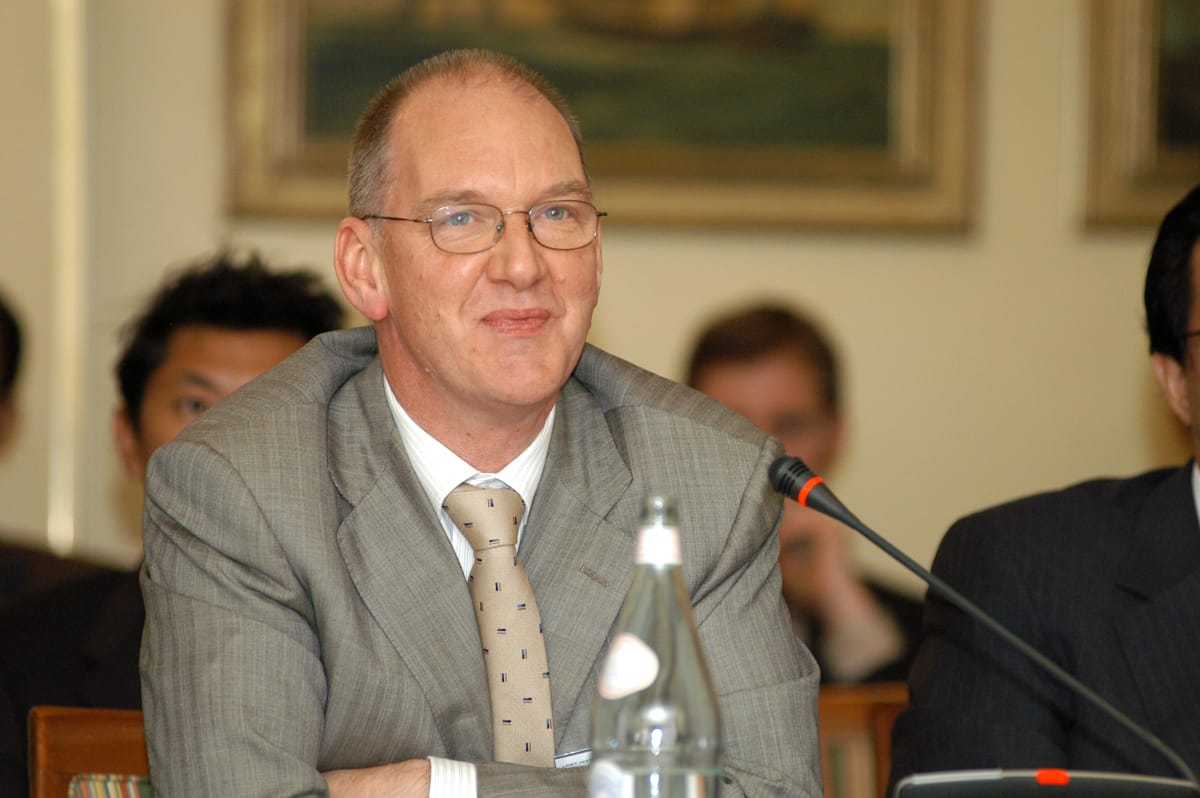
Third, resource the foreign service properly. “Nuclear submarines and Joint Strike Fighters can deter aggression and respond when deterrence fails,” Gyngell wrote in 2021 with John McCarthy, “but they don’t do much to address trade coercion, respond to climate change or set global rules for emerging issues such as cyber.” Gyngell clearly and consistently warned of the dangers of marginalising the civilian elements of Australian statecraft, including through the budgetary decline of DFAT. In addition to his extensive commentary on this, he chaired a Blue Ribbon Panel in 2009 that produced a key report, Australia’s Diplomatic Deficit, that opened up a vital line of work by the Lowy Institute over several years on Australia’s diplomatic capabilities. Gyngell’s call to “invest in the institutions and instruments of Australian foreign policy – our overseas posts, our trained diplomats, our soft power potential to influence and encourage – with the same calculation that we invest in our defence capabilities” is as relevant as ever.
Fourth, use foreign policy speeches on hard challenges. A feature of Gyngell’s sophisticated views on Australia’s relationship with China was his insistence on the value of Australian political leaders speaking more clearly and openly about the relationship. In 2022, he argued on the Australia in the World podcast that it would be valuable for the Australian government “to make a formal statement about its relationship with China”, noting that “it’s as important for our own policy processes as it is for the message it sends to Beijing.” He later elaborated that while ambiguity can be appropriate in international affairs, and foreign policy must of course adapt to a changing international environment, “in a case like the Australia-China relationship where there are so many strategic, economic, societal issues at play, and where China is so central to so much of what Australia wants to accomplish in the world … there is a strong case for clarity, at least on the main structural issues.” A speech could set out the parameters and depth of Australia’s interests and objectives – and help overcome misreading – for the benefit of Beijing, other states, Australian policymakers and the public at large.
Fifth, don’t securitise everything. Given the spectre of multiple threats, from terrorism to natural disasters, there is a temptation for policymakers to see multifaceted problems through a narrow security lens – and thus to respond with ill-suited tools. Gyngell avoided this trap. “The effective use of the ADF is always going to be properly very limited and governments should be very careful about the ways in which they try to use the military,” he cautioned in 2020. Gyngell worried about the militarisation of American society due to gun culture, and encouraged Australian governments to work hard to “prevent that happening here”.
What I love about these ideas is the way they reflect the mind of someone thinking deeply on many levels: syncretic but rooted in a robust and fresh worldview. Gyngell saw things with his own eyes, rather than slavishly following others, and was thus able to combine and recombine nuanced solutions pertaining to identity, relationships, values, and power – the things that characterise global affairs and Australia’s role in influencing the direction of history.
In his magisterial history of Australian foreign policy, Fear of Abandonment, Gyngell asked whether Australian political leaders can “bridge the perpetual and necessary tension between a tragic imagination that contemplates catastrophe and an inspired imagination that envisions a better world”. Today, Australia’s contribution to global progress must be reimagined to meet the moment we’re in. It will be considerably harder without Gyngell illuminating the possibilities.
